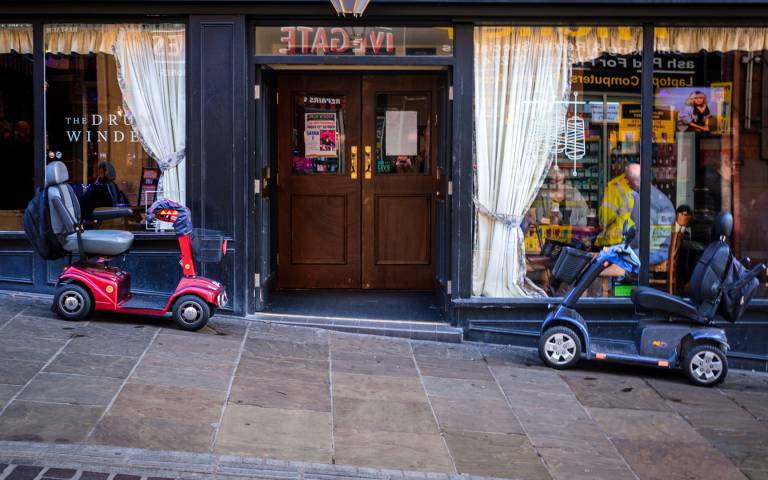Space Syntax Laboratory Secures £1.2 million Grant for Healthy Urban Places Research
9 April 2024
The Bartlett’s Professor Laura Vaughan is Deputy Director for the UKRI-funded project investigating the impact of place on health and inequality in the UK.

A landmark funding award of £8.6 million from UK Research and Innovation (UKRI) will bring together The Bartlett School of Architecture, Bradford Institute for Health Research (BIHR) and researchers across the north of England for a population health improvement study.
Over £1.2 million of the funding will be allocated to The Bartlett’s Space Syntax Laboratory to investigate what makes a healthy place for communities in Bradford and Liverpool, and how healthy urban places change over time. The four-year project started on 1 April 2024. Professor Laura Vaughan, Director of the Space Syntax Lab, is Deputy Director for the ‘Healthy Urban Places’ project and will lead the local team. Dr Kimon Krenz, an architect and spatial data scientist within the lab, will co-lead the project’s longitudinal spatial and health data infrastructure.
‘Healthy Urban Places’ is a partnership between the BIHR based at Bradford Teaching Hospitals NHS Foundation Trust, UCL, the Universities of Liverpool, York, Leeds and Bradford, Imperial College London, the Bradford Council Health Determinants Research Collaboration and Barcelona Institute for Global Health. It will involve local communities and decision-makers and will harness existing major research initiatives including the Born in Bradford and Children Growing Up in Liverpool cohorts. The formation and funding of the project builds on several years of collaboration between The Bartlett’s Space Syntax Lab and the BIHR, home to the landmark Born in Bradford research programme through two projects: the ActEarly research consortium, and the Connected Bradford project.
Commenting on the funding, Prof Vaughan said:
“We are becoming increasingly aware that communities living in deprived areas bear the brunt of unhealthy urban environments. This funding is an exceptional opportunity for the Space Syntax Laboratory to work with leading experts in population health alongside Bradford and Liverpool's local communities and decision-makers. Together, we aim to understand how best to harness the potential of the places in which communities live, work and socialise as tools to improve population health."
Working with BIHR’s Professor Rosie McEachan and Professor John Wright, the team will examine how population health is affected by features of the urban environment such as walkability, air quality, housing, public transport, access to schools, parks, social and community assets, healthy food and health services. This research theme is one of four projects funded as part of a £35 million Population Health Improvement UK (PHI UK) investment by UKRI to improve the health of communities across the UK, reduce health inequalities and develop and evaluate effective, long-lasting and environmentally sustainable interventions.
Prof Vaughan and Dr Krenz will recruit two postdoctoral fellows with health research experience to join the project – one with expertise in spatial data and another in space syntax.
More information
- View Professor Laura Vaughan’s profile
- View Dr Kimon Krenz’s profile
- Find out more about the Space Syntax Laboratory
- Find out more about Prof Vaughan and Dr Krenz’s research into the built environment and population health
- Space Syntax: Architecture & Cities MSc/MRes
- Architectural Space & Computation MPhil/PhD
- Architectural Computation MSc
- Read the UKRI funding announcement
Image: 'Pub Lunch' – Two mobility scooters parked outside the Drum Winder public house, Bradford, by Marcus Rattray
 Close
Close

